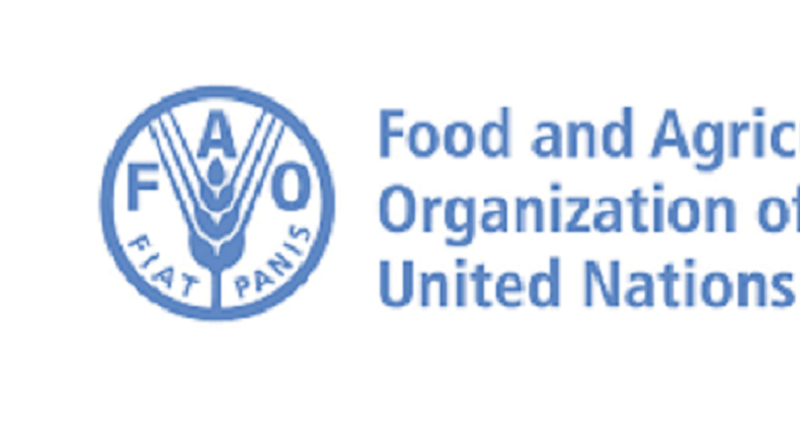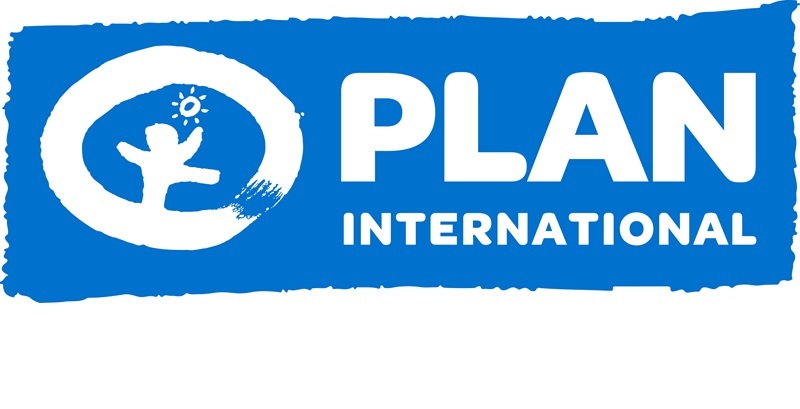L’Organisation des Nations unies pour l’alimentation et l’agriculture est une organisation spécialisée du système des Nations unies, créée en 1945 à Québec. Son siège est à Rome, au Palazzo FAO, depuis 1951.
Post Number: N/A
IMPORTANT NOTICE: Please note that Closure Date and Time displayed above are based on date and time settings of your personal device
- FAO is committed to achieving workforce diversity in terms of gender, nationality, background and culture.
- Qualified female applicants, qualified nationals of non-and under-represented Members and person with disabilities are encouraged to apply;
- Everyone who works for FAO is required to adhere to the highest standards of integrity and professional conduct, and to uphold FAO’s values
- FAO, as a Specialized Agency of the United Nations, has a zero-tolerance policy for conduct that is incompatible with its status, objectives and mandate, including sexual exploitation and abuse, sexual harassment, abuse of authority and discrimination
- All selected candidates will undergo rigorous reference and background checks
- All applications will be treated with the strictest confidentiality
Organizational Setting
In the ECOWAS region, many member states identify weak forest sector governance and institutions, as well as a lack of consistency between laws and implementation across borders, as critical challenges to sustainably manage forests. The African Forest Forum (2014) highlights cross-border trade in West Africa as being essential for livelihoods in the region, yet unsustainable practices such as illegal trade of wildlife and forest products undermine the livelihood benefits that could otherwise be derived. This issue is particularly relevant at a sub-regional level as sawn timber, rosewood plywood and fuelwood are traded from the Guinean rainforest countries to Sahelian countries and abroad (e.g. Asia-Pacific) through both legal and illegal channels.
Wildlife crime is having a direct and negative impact on ecosystems and livelihoods across West Africa. The region is home to globally important ecosystems, such as the Upper Guinean Forest and Niger Delta inland wetland, which support a vast array of plant and animal species.
The West Africa Strategy on Combating Wildlife Crime (WASCWC) creates a new and innovative mechanism to significantly reduce wildlife crime and other related threats to improve biodiversity conservation for the welfare and socio-economic development of West Africans.
The WASCWC provides a framework through which all relevant stakeholders will be able to coordinate a robust response to wildlife crime, confident that their combined efforts will result in a more secure and diverse environment for future generations of West African citizens.
The WASCWC reflects the priorities of ECOWAS Member States to fulfil their obligations under multilateral agreements, as well as their national legal and policy commitments, including the development of national strategies for combatting wildlife trafficking and establishing action-oriented national wildlife law enforcement task forces. Adequate national mechanisms can support operationalizing the WASCWC in each Member State, and in coordination with regional enforcement mechanisms developed under the West Africa Network to Combat Wildlife Crime (WAN).
The FAO in partnership with Economic Community of West African States (ECOWAS) is implementing a 5year project: Global Transformation of Forests for People and Climate: a focus on West Africa, with financial support from the Swedish International Development Cooperation Agency (Sida). The project contributes to the implementation of the ECOWAS Convergence Plan for the Sustainable Management and Use of Forest Ecosystems in West Africa, adopted in 2013.
The project’s objective is to strengthen decision-making on forests and land management across West Africa and focuses on 3 out of the seven priority areas (focus areas) of the forest convergence plan:
Focus area 1: Knowledge of the state of forest ecosystem dynamics
Focus Area 2: Forest and land related laws, policies and strategies at the sub-regional level; and
Focus Area 3: Demonstration of community-based sustainable forest and land use practices and encouraging south–south cooperation
A meeting held with the Interim Director of Environment and Natural Resources of ECOWAS has recommended the project to support some of the actions described under the core objectives of the WASCWC and to build synergies with other relevant projects such as the new USAID-funded project “West Africa Biodiversity and Low Emission Development (WABILED)”.
Reporting Lines
The international consultant will work under the overall supervision of the coordinator of the sub regional office for West Africa and under the technical supervision of the Project Manager, the Forestry Legal Officer at headquarters and the Legal Officer based at the sub-regional office, and in collaboration with the FAO’s Regional Office for Africa (RAF), the country Offices and the Forestry technical division and in consultation with relevant national counterparts.
Technical Focus
As part of the support to the core objective 1 of the WASCWC “Strengthen institutional responses to combat wildlife crimes through training, capacity building and law enforcement”, the international consultant will develop a training of trainers’ curriculum to strengthen ECOWAS’ and Member States’ institutional capacities and responses to raise awareness about and combat wildlife crime, taking into consideration the legal tools developed by the Sustainable Wildlife Management Programme and the FLEGT_Programme led by FAO (e.g. Timber Lex), the training manuals and guides developed under the West Africa Biodiversity and Climate Change (WA BiCC) Program, and other instruments developed by the United Nations Office on Drugs and Crime (UNODC). The training Curriculum will provide capacity development centered on the WASCWC and will focus specifically on matters relating to timber trafficking. The curriculum will be addressed to different categories of stakeholders implicated in sustainable wildlife management (including CITES authorities, law enforcement officers, judges and prosecutors) to teach participants about sustainable institutional and governance practices, and mechanisms to combat crimes that relate to timber. The Convention on International Trade in Endangered Species (CITES) treaty will be central to the curriculum, alongside various other international, regional and national procedures and mechanisms. Another key aspect will be centered on the need to strengthen and/or develop legal frameworks for deforestation free forest related products and sustainable management and trade of timber resources. It will be addressed to all relevant actors (governmental to communities) involved in the enforcement (and management) of deforestation free value chains.
The training module will be available for use by all countries in the region in French and English.
Tasks and responsibilities
The consultant will be responsible for the following tasks:
• Develop a work plan to be presented within the first 15 days of the consultancy, including the description of the products, the methodology and the timeline.
• Carefully assess the contents of the new West Africa Strategy on Combating Wildlife Crime, aiming to strengthen institutional responses to combat wildlife crime in ECOWAS countries.
• Engage with the Mano River Union to assess how its Joint Border Security Units could be better integrated into the work of other wildlife enforcement teams and efforts.
• Consult closely with the WABiLED team to identify what trainings and capacity building activities were conducted and/or are planned under WA BiCC and WABiLED, including the ongoing application of a needs assessment questionnaire in all ECOWAS Member States.
• Identify the main gaps, weaknesses and needs related to institutional frameworks and law enforcement mechanisms aiming to combat forest related crimes, as well as the types of additional responses needed to bolster or develop institutional capacities at national and sub-national level and to strengthen the implementation of relevant tools to prevent and combat illegal trafficking of forest related products in the West African sub region.
• Based on the assessment of what has been done and identified needs, develop and/or adapt and/or build on a training of trainer Curriculum addressed to law enforcement officers and other key institutional actors on cross-border cooperation to strengthen institutional and law enforcement capacities to generate country responses to prevent and combat timber trafficking. This training of trainers’ course will help the officers to be more effective as trainers of wildlife law enforcement, not only to their teams but to their agencies and the public as well.
• Liaise with WABiLED focal points, the Mano River Union, and with relevant national counterparts and institutional stakeholders located in the region to inform the training of trainers Curriculum.
• Contribute to sharing and dissemination of the contents of the training of trainers Curriculum, as needed with logistical and technical support of the FAO country office and HQs/sub regional team when needed.
• Any other duty agreed upon with the supervisor and contributing to the achievement of the successful implementation of the assigned tasks.
CANDIDATES WILL BE ASSESSED AGAINST THE FOLLOWING
Minimum Requirements
- University Degree on forestry or related areas, including law and political sciences.
• At least five years of experience in the wildlife sector, working on enforcement/policy/institutional/governance/matters.
• Demonstrated ability to write clearly and accurately in French and/or in English (with level C in one of the two and level B in the other).
FAO Core Competencies
- Results Focus
• Teamwork
• Communication
• Building Effective Relationships
• Knowledge Sharing and Continuous Improvement
Technical/Functional Skills
• Work experience in more than one location or area of work
• Extent and relevance of experience in curriculum development
• Extent and relevance of experience in the sub region
Selection Criteria
- Experience with governments and other local actors to strengthen their capacities is considered as an asset.
• Good knowledge of the regional context related to the wildlife crimes and management of forests.
Please note that all candidates should adhere to FAO Values of Commitment to FAO, Respect for All and Integrity and Transparency
ADDITIONAL INFORMATION
- FAO does not charge any fee at any stage of the recruitment process (application, interview, processing)
- Please note that FAO will only consider academic credentials or degrees obtained from an educational institution recognized in the IAU/UNESCO list
- Please note that FAO only considers higher educational qualifications obtained from an institution accredited/recognized in the World Higher Education Database (WHED), a list updated by the International Association of Universities (IAU) / United Nations Educational, Scientific and Cultural Organization (UNESCO). The list can be accessed at http://www.whed.net/
- For more information, visit the FAO employment website
- Appointment will be subject to certification that the candidate is medically fit for appointment, accreditation, any residency or visa requirements, and security clearances.
HOW TO APPLY
- To apply, visit the recruitment website at Jobs at FAOand complete your online profile. We strongly recommend that your profile is accurate, complete and includes your employment records, academic qualifications, and language skills
• Candidates are requested to attach a letter of motivation to the online profile
• Once your profile is completed, please apply, and submit your application
• Candidates may be requested to provide performance assessments and authorization to conduct verification checks of past and present work, character, education, military and police records to ascertain any and all information which may be pertinent to the employment qualifications
• Incomplete applications will not be considered
• Personal information provided on your application may be shared within FAO and with other companies acting on FAO’s behalf to provide employment support services such as pre-screening of applications, assessment tests, background checks and other related services. You will be asked to provide your consent before submitting your application. You may withdraw consent at any time, by withdrawing your application, in such case FAO will no longer be able to consider your application
• Only applications received through the FAO recruitment portal will be considered
• Your application will be screened based on the information provided in your online profile
• We encourage applicants to submit the application well before the deadline date.
If you need help, or have queries, please contact: [email protected]





